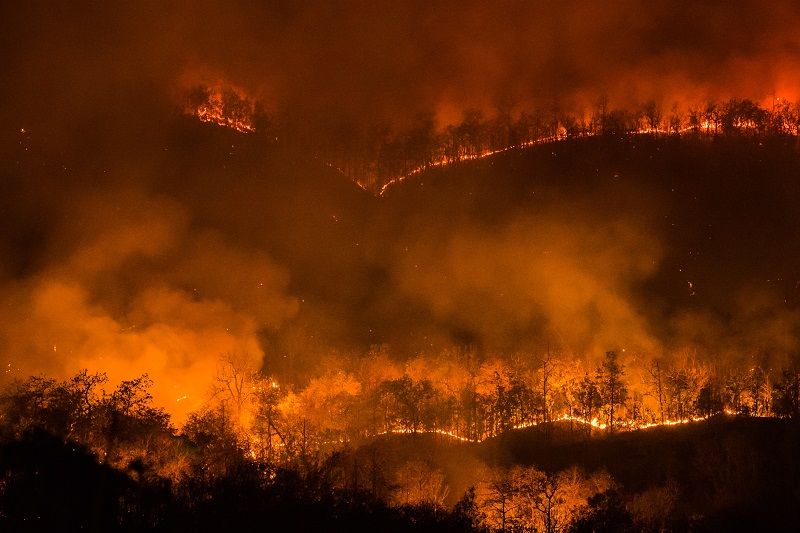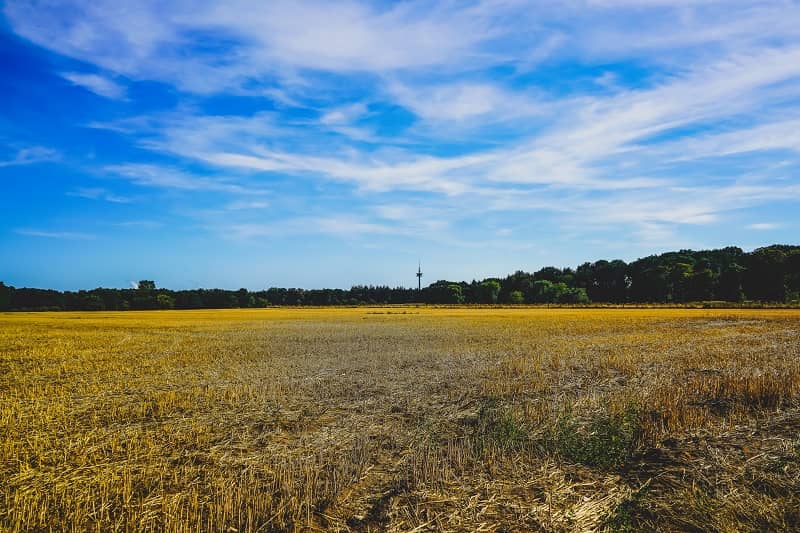By Justus Armstrong
Wildfires in Oregon this summer have burned thousands of acres, resulting in hazardous air quality conditions and the evacuation of hundreds. As our firefighters face these fires, it’s important to examine the policies and practices that may contribute to increased wildfire risks.
Environmental advocates point to carbon-induced climate change as a factor in intensified droughts and longer fire seasons, but dealing with climate change as a means of dealing with wildfires puts the cart before the horse. Wildfires are a cause of carbon emissions more than a consequence, since burning forests release higher amounts of stored carbon. Before addressing the impacts of carbon on our forests, we must address the impacts of poor forest management.
Proposed strategies for preventing wildfires have included clearing overcrowded forests with commercial logging, or focusing the Forest Service budget on prevention today to save money on firefighting tomorrow. These solutions are a start, but the root of the problem exists at the top. The U.S. Forest Service simply doesn’t have the same incentive to take care of Oregon forests as those most affected by wildfires. In addition to reevaluating regulations that hinder controlled burning and forest clearing, Oregon officials can advocate for the decentralization of federal forest management to state, local, or private levels. Rethinking forest management is one step towards preventing future wildfires.
Justus Armstrong is a Research Associate at Cascade Policy Institute, Oregon’s free market public policy research organization.
Click here for PDF version:
9-12-18-Better_Forest_Management_Can_Prevent_Oregon_WildfiresPDF













David Appell
“Wildfires are a cause of carbon emissions more than a consequence, since burning forests release higher amounts of stored carbon.”
Oh please, that’s just absurd. You really want to compare the amount of carbon emitted from wildfires to the amount emitted globally from burning fossil fuels?
“Before addressing the impacts of carbon on our forests, we must address the impacts of poor forest management.”
Can you point to just one example where “forest management” didn’t result in destroying the forest?
Let forests alone — let them be forests.
kathy
Should I mail this Study to Pres. Trump? My congress people? state reps? what can I do – we are wasting our forests – and it disturbs me.
T.W. Scott
Unfortunately most of this fire problem goes back to the Wilderness Act. This made fire fighting’s initial attack often much slower, and allowed difficult to reach fires to get to be bigger and more expensive, as well as big smoke generators. This is hardly the Forest Service’s fault, as they were handed the job of fire protection in Wilderness areas without much of any effective plan as to how to do it effectively AND economically. On top of that they were stuck with the MIST rules (Minimum Impact Suppression Techniques ), which often restricts the use of heavy equipment – such as dozers – to build fire line.
So one way to look at creating wilderness is: that you take timberland – an asset and convert it into a very expensive and often dangerous liability. And then we wonder how to “manage it” with a negative cash flow! In 2017 many of the bigger fires in Oregon, Idaho and Montana were lightning fires in wilderness. I studied these three states particularly, I just picked these three to study, and it may have been true in other states as well.